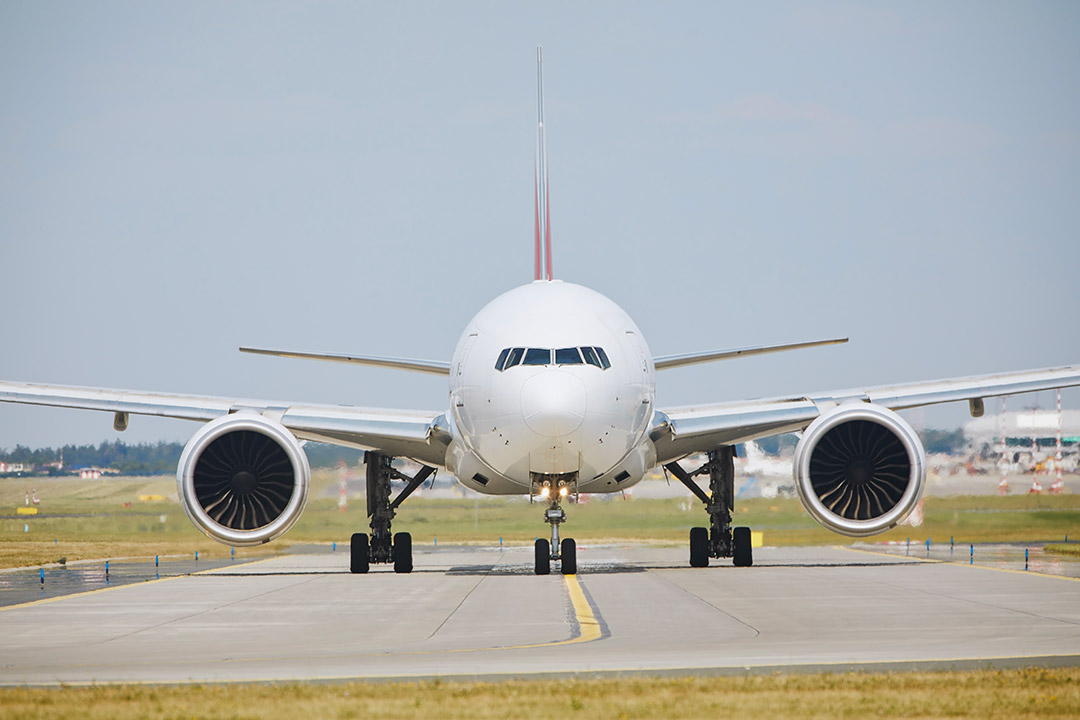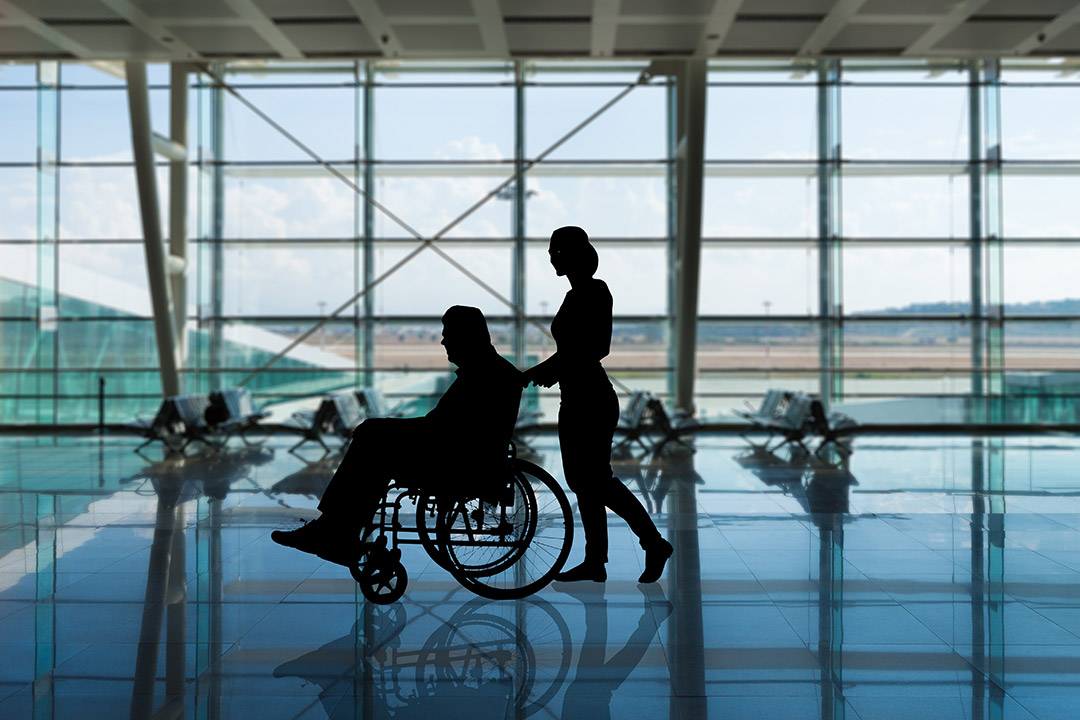Imagine planning a trip, only to suffer a concussion days before your flight. Should you cancel your plans, or is it safe to fly? This question plagues many travelers facing this dilemma. A concussion, while common, is a serious injury that requires careful consideration when it comes to air travel. In this article, we will explore the risks and realities of flying with a concussion, provide expert advice on how to manage this situation and discuss MTI 24/7’s medical transport options for those who need extra care. Whether you are a frequent flyer or planning a one-time trip, understanding the impact of concussions on air travel is crucial for your safety.
What are the key takeaways about flying with a concussion?
Concussions are traumatic brain injuries that can significantly impact cognitive function and require careful evaluation before air travel.
Doctors typically recommend waiting 1-2 weeks post-concussion before flying, with longer periods advised for severe cases.
Flying with a concussion poses risks such as increased intracranial pressure, symptom exacerbation, and potential re-injury due to turbulence.
MTI 24/7 provides specialized medical escort services on commercial flights and air ambulance options, including sea-level flights for altitude-sensitive patients.
Proper precautions, like medical clearance, symptom management, and professional support, can make air travel safer for concussion patients when necessary.
What is a concussion?
A concussion is a form of traumatic brain injury that occurs when the brain experiences a sudden, forceful movement within the skull. This can result from a direct blow to the head, a powerful jolt to the body, or a strong impact to the face or jaw. The rapid acceleration and deceleration cause the brain to shift, potentially stretching and damaging brain cells, disrupting neural pathways, and altering brain chemistry. While often referred to as "mild”, concussions can have significant impacts on brain function, and cause long-lasting effects.
What are the telltale signs that you might have a concussion?
Concussions can manifest through a wide array of symptoms, ranging from subtle to severe. Be alert for these key indicators:
Overwhelming fatigue or unusual drowsiness.
Sudden onset of nausea or repeated vomiting.
Tinnitus - a ringing or buzzing sound in the ears.
Overall feeling of being sluggish, hazy, or "out of it".
Visual disturbances, such as blurred or double vision.
Delayed reactions or slower processing of information.
Noticeable difficulty concentrating or focusing on tasks.
Gaps in memory, especially surrounding the injury event.
Altered sleep patterns - either excessive sleep or insomnia.
Persistent headache or a sensation of pressure in the head.
Uncharacteristic mood swings, irritability, or emotional responses.
Unsteadiness, dizziness, or problems with balance and coordination.
Heightened sensitivity to light and noise, often finding normal levels uncomfortable.
Remember: Concussion symptoms may not appear immediately. Some signs might emerge hours or even days after the initial injury. Always monitor closely for any changes in the days following a head impact.
Can you fly with a concussion?
The answer is complex and depends on several critical factors, including:
Your current symptoms: The presence and intensity of ongoing symptoms significantly influence travel readiness.
The severity of the concussion: Mild concussions may allow for earlier travel, while severe cases often require extended grounding.
The time since the injury: Fresh concussions pose higher risks. As time passes, the brain begins to heal, potentially making air travel safer.
While general guidelines suggest waiting 1-2 weeks post-concussion before flying, individual recommendations can vary based on a doctor's assessment, especially for severe cases. Some may clear you for short flights if symptoms are mild and improving, while others may insist on complete recovery.

What are the risks of flying with a concussion?
Flying with a concussion can significantly amplify health risks and potentially impede recovery. Passengers should be aware of the following potential complications:
Re-injury risk: Turbulence or sudden movements may cause further trauma to the healing brain.
Cognitive vulnerability: Impaired decision-making and slower reactions due to concussion could be critical in emergencies.
Blood clot danger: Prolonged inactivity during flights, which is often recommended for concussion patients, increases the risk of deep vein thrombosis (DVT).
Increased intracranial pressure: Cabin pressure changes can worsen headaches and dangerously elevate pressure within the skull.
Symptom exacerbation: The airplane environment - confined spaces, noise, and motion - can intensify dizziness, nausea, and sensory sensitivities.
Flying with a concussion: Tips for a safer trip
If you must fly with a concussion, follow these crucial tips to manage your condition:
Secure medical clearance from your doctor before flying.
Bring all prescribed medications and take them as directed.
Take regular, short walks during the flight to promote circulation.
Hydrate thoroughly before and during the flight to prevent dehydration.
Inform the flight crew about your condition in case you need assistance.
Pack comfort items such as a neck pillow and wear comfortable clothing.
Minimize the use of electronic devices to avoid straining your eyes and brain.
Use noise-canceling headphones or earplugs to minimize sensory overload.
Ensure adequate rest before your journey and try to sleep during the flight.
Protect your eyes with sunglasses or an eye mask if you are sensitive to light.
Practice relaxation techniques like deep breathing to manage stress and anxiety.
Reserve an aisle seat near the front for easy movement and reduced noise exposure.
How can MTI 24/7’s medical escort service ensure your safety?
Imagine having to fly home after a concussion, feeling anxious about the journey ahead. That is where Medical Transport International 24/7’s commercial medical escort service steps in to transform your experience.
From the moment you start your medical journey, you will have a board-certified doctor or critical care nurse by your side. They will skillfully guide you through the airport chaos, shielding you from overstimulation and handling all travel logistics.
Once onboard, your medical escort will ensure manage your pain with precisely timed medications, and constantly monitor your vital signs with portable medical equipment. Need to move around? Your escort assists with safe, gentle exercises to prevent blood clots. Feeling nauseous or dizzy? They have specialized techniques to alleviate these symptoms mid-flight.
Throughout the journey, your commercial medical escort liaises with the flight crew, ensuring you receive priority care and minimizing any potential disruptions. Upon landing, they will coordinate your smooth transition to ground transportation or waiting family members.
With our medical escort service, you are not just a passenger – you are our patient. We bring hospital-level care to the skies, ensuring your concussion recovery is not compromised by necessary travel.

When is an air ambulance essential for concussion patients?
For patients with severe concussions, MTI 24/7’s air ambulance service can be a lifeline when commercial travel is too risky. This specialized transport becomes crucial when symptoms are intense, complications are likely, or constant medical supervision is necessary.
Safety is our paramount concern. Each air ambulance is staffed with a full medical team, which may include neurological specialists, ready to address any concussion-related complications. The aircraft is outfitted with advanced monitoring and emergency equipment, essentially bringing a mobile ICU to the skies. We can precisely control cabin pressure and environment, significantly reducing the risk of symptom exacerbation.
For those particularly sensitive to altitude changes, we offer sea-level flights. On our ambulance planes, the cabin pressure can be adjusted to be closer to sea level. This means less pressure change for your brain, reducing risks of headaches, dizziness, and increased intracranial pressure. If you are still experiencing concussion symptoms or worried about how altitude might affect your recovery, this service is for you.
The benefits of our air ambulance service extend beyond safety. Your entire journey is customized to your medical needs, with the ability to respond instantly to any changes in your condition. This dedicated approach not only reduces the risk of complications but also provides peace of mind for you and your loved ones.
Why should patients with a concussion choose MTI 24/7 for their medical transport?
When it comes to transporting patients with concussions, our experience makes all the difference. Our medical transport services have earned the trust of patients worldwide for several compelling reasons:
24/7 availability: Our services are accessible round-the-clock.
Tailored care plans: We customize our services to your specific symptoms and needs.
Global reach: We arrange medical transport worldwide, ensuring care wherever you are.
Family accommodation: We can arrange for a family member or doctor to travel with you.
Seamless medical coordination: We work closely with your doctors to ensure continuity of care.
Bed-to-bed service: We manage your entire journey, from bedside pickup to the final destination.
Cost-effective solutions: We provide appropriate and efficient transport options to suit your budget.

How can patients with a concussion book our medical transport services?
Booking our concussion-specialized medical transport is effortless:
Reach out: Contact our 24/7 team via phone, email, or our secure online portal.
Personalized assessment: Our experts evaluate your medical needs and recommend the optimal transport option.
Seamless coordination: We handle all logistics, from booking to bedside pickup, ensuring a worry-free journey.
Trust us to manage your safe travel while you focus on recovery.
Contact us to fly safely with a concussion!
Fly safely with MTI 24/7's specialized concussion care. Our expert medical escorts and air ambulance services ensure your journey is as safe as possible. Contact us now to discuss your personalized travel plan and focus on your recovery.
Reach us by:
Phone: USA: +1 646 335 06 83 / UK: +44 20 3608 0959
Email: info@mti-247.com
Our contact form
:quality(75))
:quality(75))